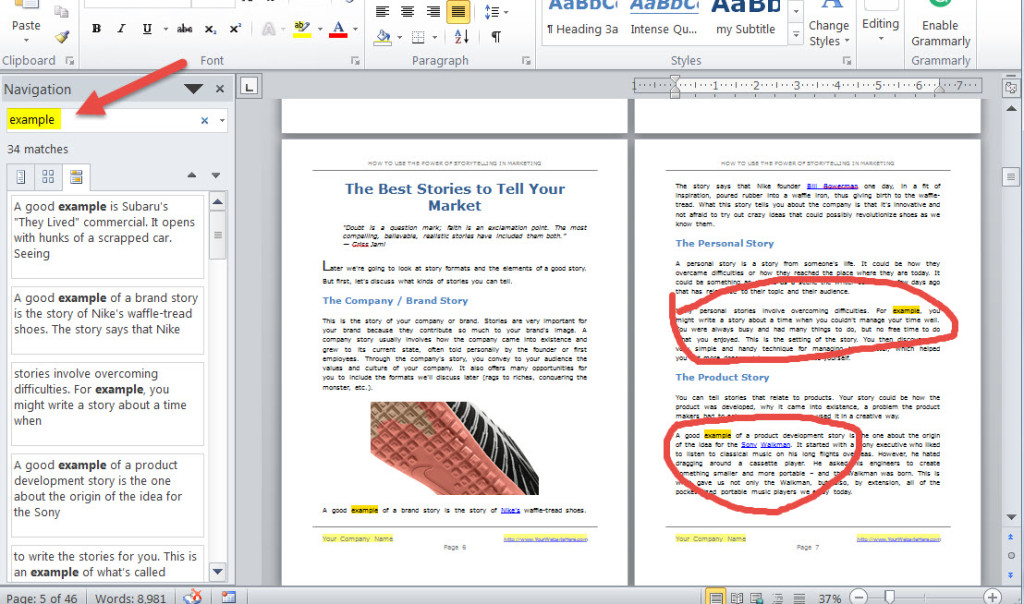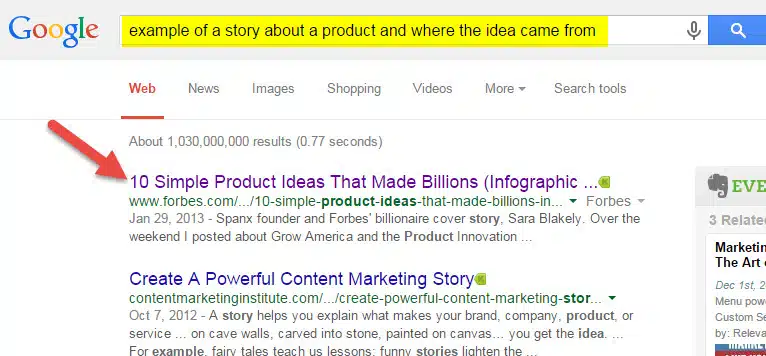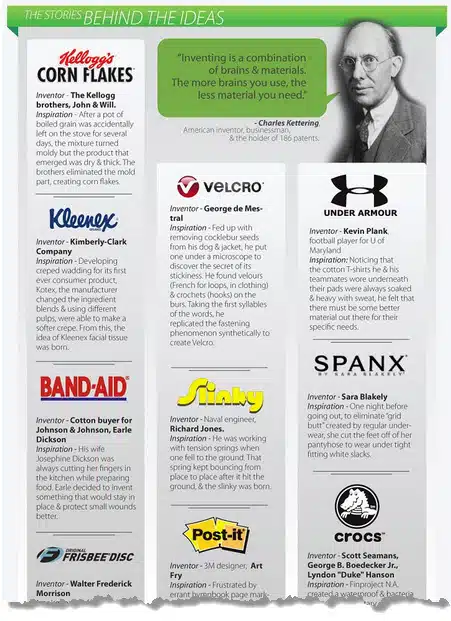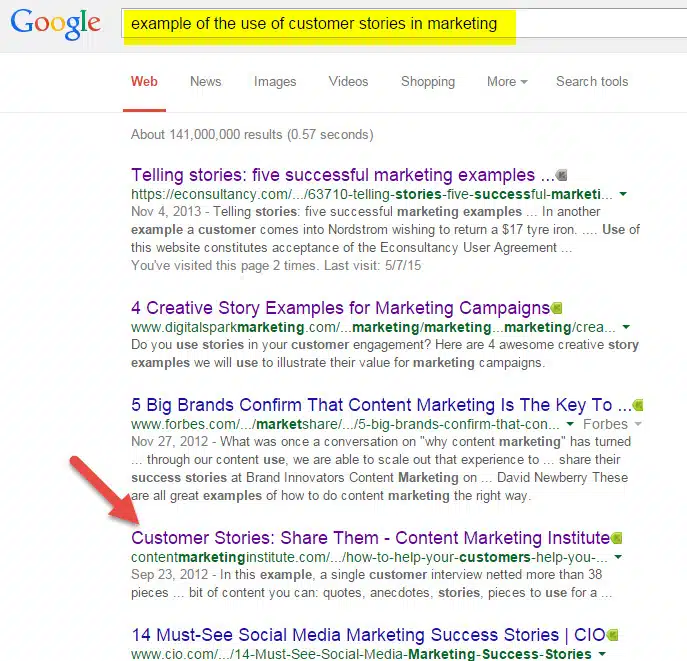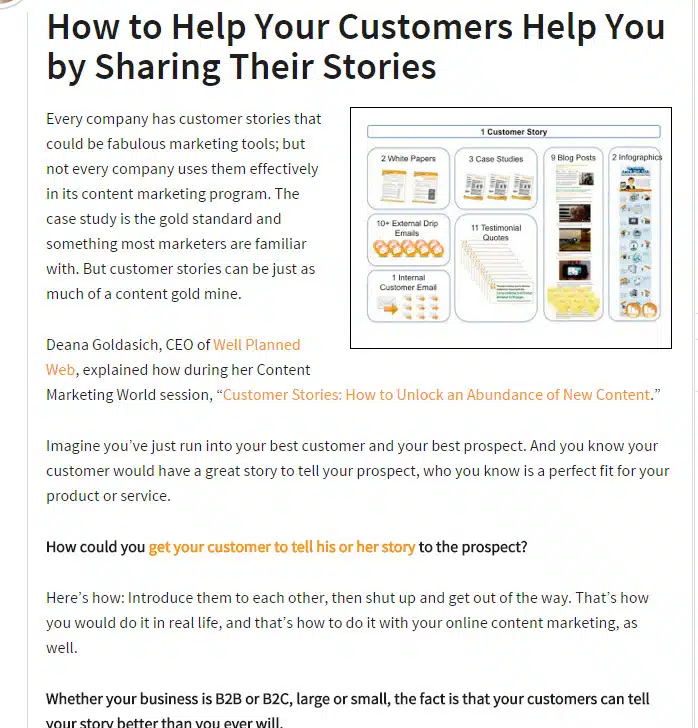One of the best ways to make your content totally unique and relevant to your market is through the examples you inject throughout.
Your examples and stories are what will bring your content to life for your readers and help them to see how it applies to their own world.
But where do you start? You have this great piece of customizable content that you're free to edit, but many people just get stuck.
Well, it's far easier than you think. A little bit of search and research is key.
Let's take a section from the Course Book from our product on How to Use the Power of Storytelling in Marketing as a case study.
Step 1: Use ‘Find' to find all examples
The ‘Find' function in Microsoft Word (and probably most software) will help you find every example in the course book.
Just click on ‘Editing' and ‘Find'.
Then type in the word ‘example' in the field that pops up on the left.
Word will highlight all the locations where the document says ‘example'. You can also navigate to each in the sidebar.
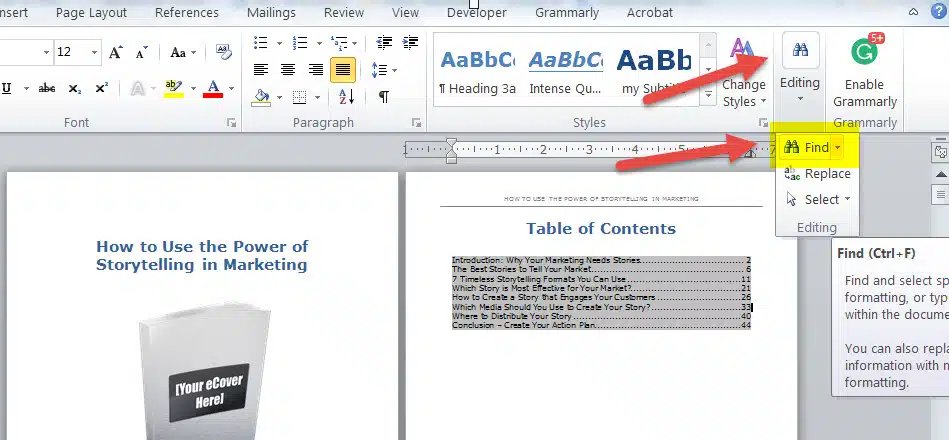
Click on Find
Type the word ‘example' and see what comes up
Step 2: Review each example and substitute or add
Navigate from one example to the next and decide whether to change it or not.
For example, there's one point where the report talks about using customer stories here:
Within that one paragraph of text, it says:
A customer story can focus on a common problem your market faces and how one particular customer overcame the problem with your product. For example, if you sell an office filing system, you could ask customers to send in their stories about how their work is different after they started using your system. Even better, ask them to send in pictures of their newly organized files so that you can illustrate the stories.
The ‘filing system' example is fairly generic, but not necessarily relevant to your market. Try changing it to something they can understand.
For example, your customers might be local retail businesses and you provide them with social media marketing services. In that case, you might ask them to share success stories about how they've increased their sales by using Facebook contests.
Then, just replace the filing system example with your own.
Step 3: Add more examples and tips
Don't stop with your own examples. Do some research on Google to find other real-world ones that are relevant, or just plain interesting.
Here's what came up when I looked for ‘example of a story about a product and where the idea came from'. I was looking for another example for the section in the course book about product stories:
When I looked at the article from Forbes magazine, I found a great infographic that listed 10 different stories from different companies. Here's an excerpt from that infographic:
You could pick just one of those stories and add it as an additional example in your version of the course.
And don't forget to add tips if you find them too!
Take a look at what comes up when I type ‘example of the use of customer stories in marketing':
One of the results is from Content Marketing Institute and has tips for how to use customer stories in your marketing.
Read through the article and then add your own tips to the course book. Or reference the article, with a link to it, and quote part of it.
Now you've just added even more value to your content and you could even expand that section into something much longer.
Those are just a few ideas that came up from my search in one section of one chapter.
Once you start going through your content yourself, with the simple ‘find' function, you can explore dozens of places. Replace or add to the examples and you'll soon have a unique version of your own product.
And that's without redesigning or reorganizing anything 🙂
Do you have any of your own tricks for adding examples to your content?
NOTE: If you don't own a copy of our product on Storytelling in Marketing, check it out here. It's one of my favorites:
==> How to Use the Power of Storytelling in Marketing
Tags
